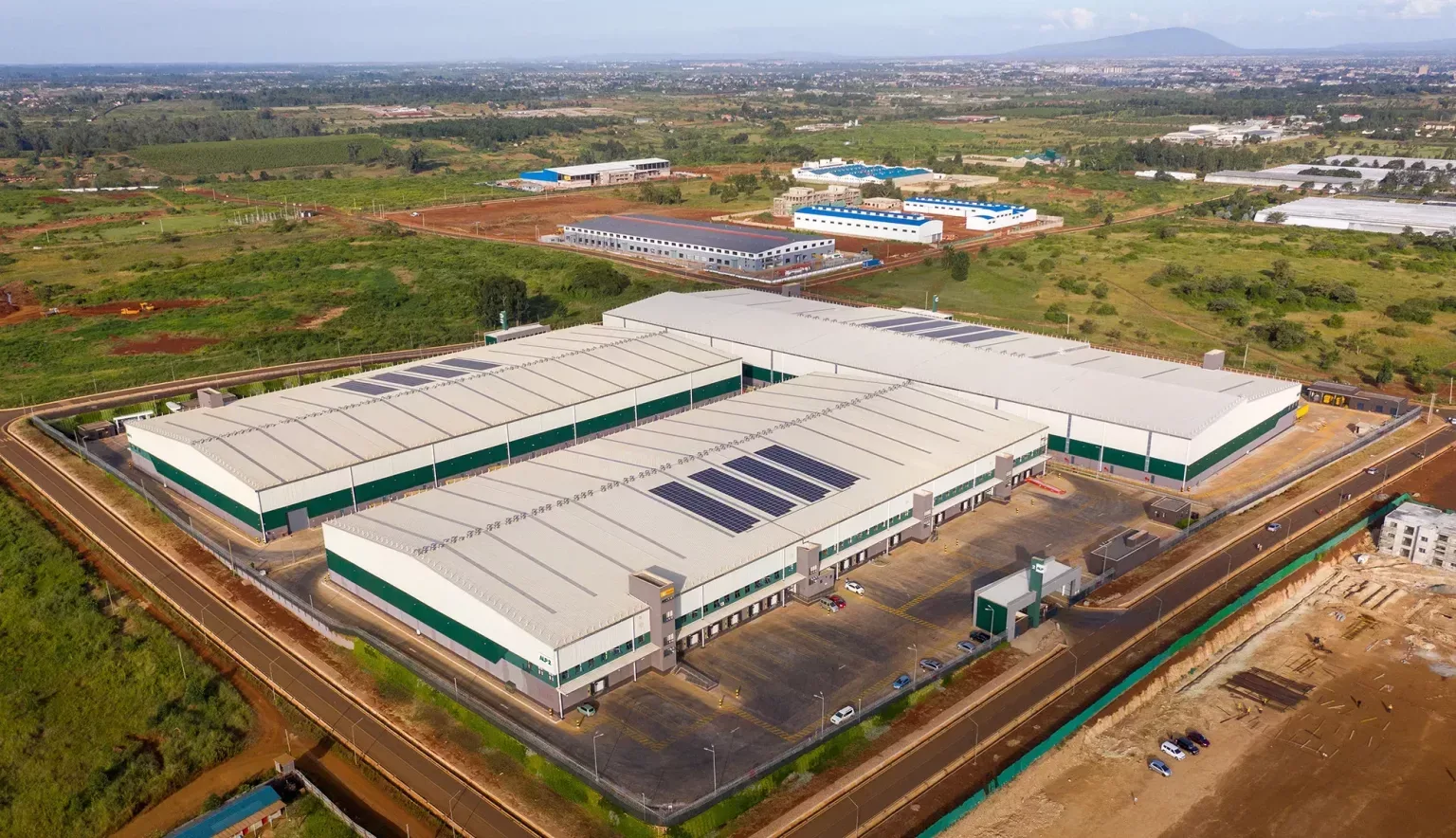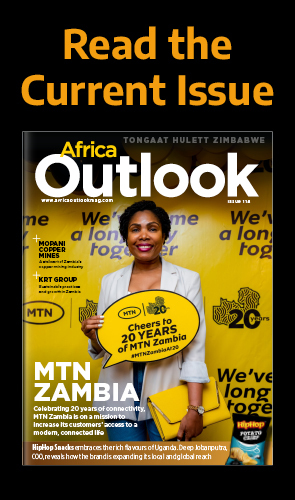Executives from Rendeavour discuss the transformation of Africa’s cities and the launch of key projects to harness its development.
INTRODUCTION
Africa is in the midst of significant transformation.
A story recounted by Evans Dimba, Rendeavour’s deputy country head in Kenya, demonstrates how far Africa’s largest new city builder has come in the last five years. It was 2015, Dimba says, and the team was pitching its first industrial client to move to Tatu City, Rendeavour’s development on Nairobi’s doorstep.
The pitch to the well-known Kenyan businessman was Rendeavour’s vision to make Tatu City’s light industrial area a major business hub in East Africa. In contrast to Nairobi’s old, traffic-choaked and infrastructure-deficient industrial area, Tatu City would have high-grade tarmacked roads, more power than Mombasa and a business climate unseen in Kenya’s history.
The problem?
“We were selling dirt and a dream,” says Dimba, who recalled the bumpy road that led to the industrialist’s future site. “There was nothing but bush.”
Since that moment a mere five years ago, Rendeavour has welcomed more than 50 business to the industrial zone of Tatu City, a mixed-use mega-development with residential and commercial areas as well, which has attracted more than $1 billion of investment. The 25km of roads laid down over the last three years are plied by leading Kenyan and international companies. Copia, the Silicon Valley-backed e-commerce startup, fulfills thousands of orders from Tatu City daily. The International Finance Corporation and CDC Group are anchor investors in a 49,000 sqm Grade A logistics facility, the largest in the region. And Distell, the South African drinks giant, is staking its expansion into Africa on a state-of-the-art distillery at Tatu City.
Across the rolling green hills of Tatu City, 5,000 affordable and mid-income apartments are delivered or under construction. The high-end neighbourhood, Kijani Ridge, will sell out in 2021. Schools, which include Crawford International, owned by JSE-listed ADvTECH, are educating 3,000 students daily. With demand skyrocketing, in 2018 Rendeavour doubled the size of Tatu City to 5,000 acres, creating 20-30 years of development opportunity. To cap it off, last year Tatu City became Kenya’s first operational Special Economic Zone, which gives businesses a low tax base and other benefits.
Tatu City’s resiliance, Dimba says, has been key to the success of Tatu City. “Building a city isn’t done from 9am to 5pm, and there are plenty of challenges. Our markets are dynamic, and there will unpredictable economic shocks, as COVID-19 has shown us. Therefore, we build deep resiliance into our business model to manage through any issues we may face.”
It’s a theme that resonates with Yomi Ademola, Rendeavour’s country head in Nigeria, who has been with Rendeavour since its founding more than a decade ago. Ademola oversees Alaro City, a unique project for Rendeavour as the company’s only Public Private Partnership. Ademola and his team joined with the Lagos State Government to develop a 5,000-acre city in the Lekki Free Zone, designed by world-renound architects and urban planners SOM.
Since its launch in January 2019, Alaro City has attracted more than 30 companies, ranging from Nigerian conglomerate BUA Group to Mantrac, the Caterpillar franchise owned by Cairo-based Mansour Group.
“The success of Alaro City is a confirmation of Rendeavour’s business model, which is based on three major trends in Africa: economic growth, population growth and urbanisation – Africa is the fastest urbanising region in the world today, and perhaps in all of history,” Ademola says. “By creating a normal operating environment for home and business owners alike, who need good land title, high-quality infrastructure and controlled development, we also become significant economic catalysts in our markets.”
As a master developer, Rendeavour is responsible for providing the infrastructure – power, water, waste, information and communications technology infrastructure, and roads – to individuals to build their homes and companies to build and run their businesses, as well as to specialist developers of schools and hospitals and for residential, commercial, retail and industrial properties. It also offers “build-to-suit” lease agreements. Rendeavour, with a team of 100 across five countries, works with major local and international contractors. Deloitte ranked Rendeavour’s Tatu City as the largest construction project in Kenya after the government’s standard guage railroad, and one of the top three private construction projects in East Africa.
Rendeavour is also present in Zambia, where residential phases in Roma Park, in Lusaka, are sold out and commercial space is going quickly, and in Democratic Republic of the Congo, where its project in Lubumbashi is at an early stage. In Ghana, the company is the developer of Appolonia City, a partnership with the Appolonia tribe on 2,500 acres. The executive in charge, Bright Owusu-Amofah, forged an alliance with one of Ghana’s leading homebuilders and the country’s largest mortgage lender, which in turn has catalysed more than 500 homes completed or under development.
When he visited Appolonia City to inaugurate Bijou Homes, an affordable housing development, Ghanaian President Akufo-Addo said, “Appolonia City is a laudable initiative and I want to encourage others to emulate. I’m happy to note that the Appolonia community is a shareholder in the project.”
Community is vitally important to every Rendeavour city, according to Owusu-Amofah. “Local communities are stakeholders in our cities. They are one of the first beneficiaries of them, through access to jobs. We don’t build and leave. Because our cities are unprecedented in scale in Africa, we will be here for another 20 years. Probably more.”
Rendeavour makes local communities a pillar of its CSR programs. It provides construction skills training for free, filling a needed gap for contractors and ensuring a high job placement rate in its cities (in four years, Rendeavour’s cities added more than 5,000 new jobs to local economies). In some cases, the company underwrites meal programs in nearby primary schools, which have boosted nutrition rates and, in turn, academic performance.
“We can’t be an island, disconnected from the communities and cities around us,” says deputy country head Dimba in Kenya. “We are building open cities that connect with local, national and regional transport networks and people and businesses both inside and outside our developments.”
Looking to the future, Rendeavour’ exectuives say they have plenty on their development plate – 30,000 acres of land in the growth paths of seven of Africa’s fastest-expanding cities. “We are building demand driven, city-scale developments over the next 20-30 years,” says Dimba, who notes that Rendeavour is a group of “long-term, individual shareholders with with a vision”, as opposed to a fund whose investors require an exit and return in, for example, five years.
At the same time, as the company completes projects, the Rendeavour team can transfer its knowledge to new markets. For this reason, Rendeavour is always open to new opportunities.

































